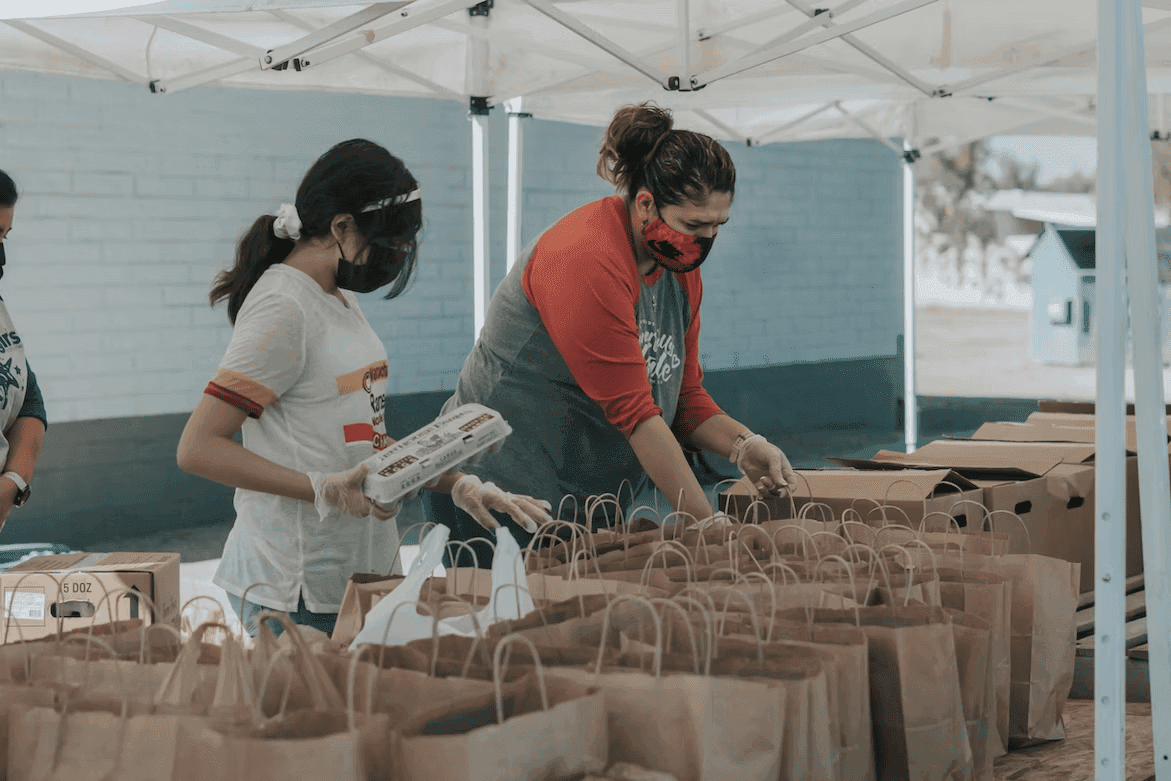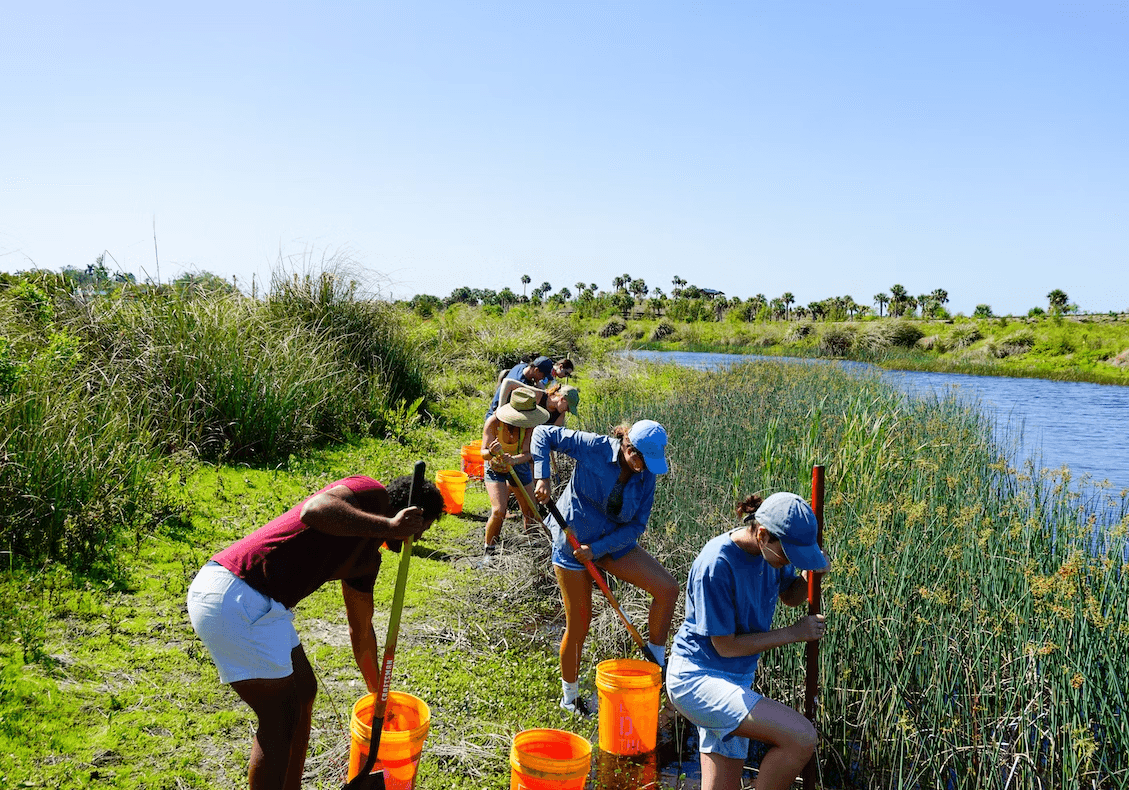
Volunteering is an amazing way to contribute to your community and work towards a common good. While volunteering is a very selfless act, studies show that it even benefits your personal well-being. Researchers report that those who volunteer experience a rush of positive emotions referred to as “helper’s high”, as well as an increased trust in others and increased social interaction.
Volunteering has no age limit; both young people and adults can greatly benefit from volunteering their time towards a cause they care about. In this post, we’ll talk about the benefits of volunteering and conclude with some suggestions on how to get started.

Volunteering is a feel-good activity that many people involve themselves in to make a difference and experience feelings of fulfillment. Volunteering offers a community of like minded people, routine physical activity, increased sense of self, and a better understanding of the world. Thus, volunteering has been shown to have both mental AND physical benefits.
Research has shown that volunteering is an excellent way to decrease risk of depression, especially among individuals who are 65 and older.
Volunteers perform vital roles in the maintenance of the welfare of their community, whether that be collecting trash from the beach, taking care of animals at a shelter, or working as a medical assistant at a hospital. The act of fulfilling these roles and seeing good come out of your efforts is very rewarding and can significantly boost your self-esteem. You also learn many skills through these tasks, such as organization and team work. You may even develop career skills when working as a volunteer in your field of interest.
The activities required of volunteers are usually physically and mentally active, including walking around, carrying things, problem solving, and communicating with others. Staying busy with fulfilling day-to-day tasks keeps you moving and thinking, both of which are huge components of mental and physical health. Research has shown that adults over 50 who volunteered for 200 or more hours each year were 40 percent less likely to develop hypertension (Carnegie Mellon University, 2012). It has also been proven to significantly increase perceived health, which actually positively affects longevity.
Volunteering induces feelings of appreciation and fulfillment, which both combat anxiety. Volunteering also allows you to surround yourself with people from many walks of life who can support you through difficult and stressful moments. Getting out of the house and setting your mind to a productive activity is also stress-reducing.
A study conducted by the University of Exeter found that individuals who regularly volunteer have a mortality rate reduced by 22%, even when controlling for age, gender and physical health. Several studies have also shown that volunteers who work with people suffering from health conditions or depression, such as volunteers at hospitals or senior care centers, in turn have lower pain levels.
Repeated interaction with those who share a common interest is a great way to develop close relationships. Not only can you make lifelong friends through volunteering, but you can also strengthen your existing relationships due to increased empathy and social skills. Studies have also shown that if you are in therapy, the feeling of connectedness you gain from volunteering can significantly improve the effectiveness of your therapy sessions.
The multifaceted benefits of volunteering extend beyond mere altruism. Beyond the sense of fulfillment and purpose it brings, volunteering actively contributes to mental and physical well-being by fostering connections, reducing stress, promoting activity, and even potentially extending one’s lifespan.

Volunteer work offers many great resources for mental health struggles. If you are struggling with mental health, there are so many organizations that enable you to help others while improving your own wellbeing. Working towards a charitable cause has been shown to greatly increase life satisfaction, especially among older people, and thus has a profound positive effect on those struggling with depression.
Susan Albers, Psy.D., psychologist for the Cleveland Clinic, states that volunteering and the act of helping others produces mood-regulating neurotransmitters such as serotonin, dopamine, and endorphins, which are all part of the reward center of the brain. As a result, volunteers feel better during and after volunteering (NACE). Getting into a routine of volunteering will result in regular release of these hormones, which are vital for increasing mood stability and preventing depression.
Volunteering also releases Oxytocin, which is a bonding hormone that also reduces stress and lowers inflammation. This hormone makes you feel close and connected to others, which improves happiness and life satisfaction. This feeling of connectedness and care can greatly reduce anxiety, as volunteers feel secure in the fact that they have a support system to fall back on (RedRiver).

Searching for volunteer opportunities is a fantastic start to your health and wellness journey! Before committing to a specific volunteer position, there are several factors to consider. It’s crucial to ensure a harmonious fit between your values and the organization’s mission, as well as to match your skills with an appropriate role. To find suitable opportunities, you can consult friends, explore dedicated volunteer opportunity websites, or research organizations of interest.
Some opportunities include:
Volunteering at your local library is a great way to help out your community without strenuous physical labor. You can help the library with tasks like shelving books, reading books to children, or even tutoring younger children. These activities can be enriching because you’re helping people learn, and it’s a big plus that the library is a calm environment.
If there is a specific non-profit or organization that you admire, reach out to their volunteer program or hiring team and ask to work as a volunteer! Offer to create content for their social media accounts, reach out to donors, or organize volunteer events. This is a great way to meet people within the organization and develop your professional skills.
Volunteering at a hospital is perfect for those interested in going into the medical field. You can get a feel for the environment, gain insight into the lives of medical professionals, and most importantly lend a hand to hardworking doctors and nurses. Some ways you can help include restocking patient rooms, restocking inventory, and working as a receptionist.
There are many ways to help the homeless in your community, and homeless shelters are always seeking volunteers! If you are interested in working in shelters, you can serve food and conduct headcounts of homeless individuals. If you want to connect homeless people to their nearest shelter, you can work for a street outreach program. If you would rather work solo, consider collecting and donating non-perishable food, feminine products, school supplies, books, etc.
Senior care centers are also always seeking volunteers to improve the quality of life of the elderly. Some tasks you could partake in include delivering meals to home-bound elderly and running errands (doing laundry, buying groceries, clothes shopping). You can also use any expertise you have to offer health and nutrition counseling. Consider hosting a dance or exercise class! You can even offer emotional counseling to seniors in need of a friend.
If you live near a beach, both you and your community will benefit from a cleaner environment. Consider volunteering at or organizing a beach cleanup! You and your friends can hangout, pick up trash, and feel good about bettering your environment. Beach cleanups also need people to donate bags, gloves, and shovels! You can even be the person who transports trash to a waste center. If you live in a state with a deposit return system, consider returning any plastic bottles and cans to a recycling center and donate the rewarded deposit money to an organization that works towards keeping our beaches clean.
Calling all animal lovers! Working at an animal shelter is the perfect volunteer opportunity for you. You can opt to take care of the animals, including cleaning dishes, feeding animals, cleaning pens, etc. If you don’t want to get your hands dirty, you can conduct operations and do office work for the shelter. There will most likely be adoption events you can volunteer at as well!
Volunteering is a super great way to spend your time if you want to make an impact on a cause you care about, get active, and feel better all around. A great way to stay involved as a volunteer is to explore various volunteering opportunities and see which ones you enjoy the most! And don’t forget, the best volunteers are the consistent volunteers, so stay active within your community and encourage others to donate their time to a meaningful cause.

My freshman year of college was filled with excitement, challenges, and a lot of personal growth. That’s why I wanted to share the top 10 things I learned my freshman year of college to help others about to start their college experience.

The first week of college is exciting, an adventure filled with new friends, new experiences, and new possibilities. To make the most of this special time, here are my top 10 tips to survive your first week of college with confidence and enthusiasm.

The complete guide to LGBTQ+ colleges. We share helpful tips for LGBTQ+ students that are looking ahead to their college journey, including how to identify LGBTQ-friendly colleges, a list of 20 colleges to get you started, and helpful resources for students and parents.